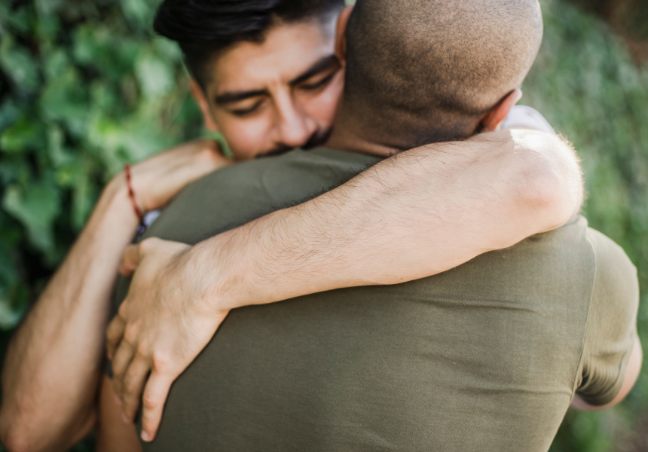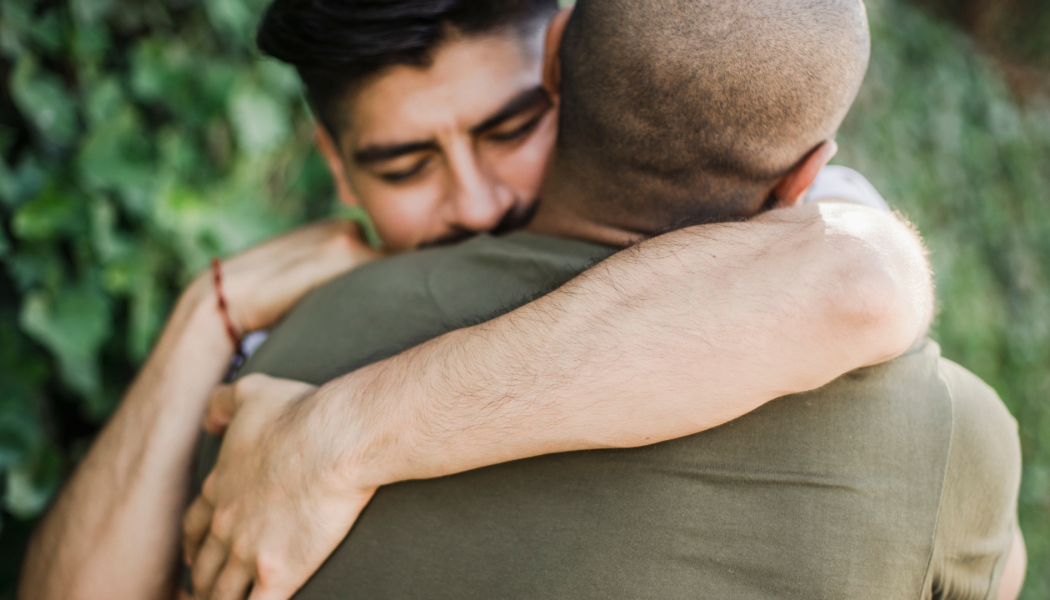Did you know that Interior Health offers dozens of mental health and substance use services? Whether you need short-term treatments or longer term therapies, help in your community or at a dedicated facility, in-person or virtual, our services are confidential and safe, and free of judgment and stigma.
Start your journey here
Start by calling 310-MHSU (6478) toll-free from anywhere in the Interior Health region to be connected to our Mental Health and Substance Use services Access Central team. You’ll chat with an empathetic person who will ask you a few questions to get you started. You can also visit one of our MHSU offices.
You can also work with your primary health-care provider. This could be your family doctor or nurse practitioner. Or visit your local Health Centre or urgent and primary care centre (UPCC). We like to say “any door is the right door”—and you’re always welcome.
If you or someone you know need immediate help and want to talk to someone, help is available 24 hours a day through the Interior Crisis Line Network at 1-888-353-2273. Crisis response teams can provide immediate support.
Call 911 for urgent, immediate help.
If you’re experiencing mental illness or have substance use concerns, our health-care teams can help you find the support that best meets your needs, either through an Interior Health service or other community partners.
Call 310-MHSU (6478) to get started or work with your health-care provider, health centre or urgent and primary care centre. Even if you’re not sure whether you need help with your mental health or substance use, we encourage you to talk to a health-care professional about your concerns and we will find you the care that meets your needs.
Some of our services include:
Treatment, Support and Recovery (TSR) services are tailored to your life and rehabilitation needs. Services may include screening and assessments, medication, counselling, treatment and recovery plans and crisis intervention. We can also help you live independently and find employment.
Psychiatrists are part of your support team. Teams also include nurses, counsellors and social workers who work together. Services are offered at hospitals, in clinics and in the community.
Mental health and substance use concerns can affect anyone, at any stage of life. We have specialized teams for youth and seniors, and offer supports that consider cultural identity, your life stage and personal goals.
- If you’re a youth wondering if your experimental, social or recreational substance use is becoming a problem, our Youth Substance Use services team can help. No pressure. No judgment. Services on your terms.
- Younger people can also experience episodes of psychosis, a treatable mental health condition. The sooner it’s treated, the better. Learn all about psychosis and how to get help from our Early Psychosis Intervention team.
- If you’re a senior and concerned about dementia, your relationship with substances, or your mental wellness, we have a Seniors Mental Health & Substance Use team here for you. Our health-care providers are experts in the unique aspects of seniors’ care.
Did you know that a lot of mental health and substance use support happens in our communities—not just in hospital beds or clinics? You can connect with our outreach team by phone, text or in person. Some of our workers also go to the streets to meet people where they’re at.
Our Outpatient Withdrawal Management (OWM) services—sometimes known as detox—can help you stabilize your alcohol or substance use from the comfort of your home. OWM is available in Kamloops, Kelowna, Penticton and Vernon for people who meet the medical criteria.
If you need quick access to medicine that treats addiction to substances like alcohol or opioids, you can refer yourself to our Virtual Addiction Medicine (VAM). All appointments are conducted virtually, allowing you to connect from home or a location of your choice. To request an appointment, simply fill out an online form or call us. No doctor's referral is needed.
We work with Peers and Peer Support Workers—including Indigenous Peers — who have lived and living experience with mental health and substance use. Peers use their own experience to help and support others on their wellness journeys.
We also have a team of Indigenous Patient Navigators who connect Indigenous clients and patients, families, community and health-care providers. They assist care teams with health care, mental health, substance use and discharge planning.
“IH Peer Support Workers show what is available but also are there to be alongside people. If you’re on your own, it’s very difficult because you don’t see the possibilities. It takes someone coming together with you—with encouragement and empathy—to show what’s possible.” - Darrell Hines, Peer Advisor with IH & MHSU client.
For individuals:
For families:
- Peer Support - Foundry
- Peer Support for Families | Kelty Mental Health
- Holding Hope Support Groups — Moms Stop The Harm
For Indigenous Persons and families:
Darrell's path back to life
Darrell had to relearn how to walk and talk after a coma nearly ended his life when fentanyl was unknowingly mixed into his drugs. “It was the help I got from IH counsellors, home support and the Brain Injury Society that brought me back. They didn’t just show up for a job. They had compassion.” He emphasizes how important it is that services like Treatment Support and Recovery (TSR) and hospital psychiatry teams go beyond labels. “They would sit and talk with me—and that helped because sometimes you get into a psych unit and it’s lonely. They really cared.”

“Don’t give up. It’s your life. Don’t let a bad situation or stigma get in the way. You are important, and you may know better than anyone else what you need—and others can help build on that.”
Darrell didn’t receive a diagnosis for bipolar 1 until he was 50—despite decades of navigating mania, addiction and periods of severe depression. That diagnosis brought clarity and was the beginning of a healing journey that included hospital stays, counselling, and now, helping others. Darrell reflects that “back 20, 30 years ago, there weren’t as many opportunities for support as we have now.”
Adam defines what success means to him
Adam Geib a Peer Advisor and Injectable Opioid Agonist Treatment program client has had many ups and downs throughout his journey. He’s been in and out of hospitals, halfway houses and jail. Through all the hurdles, he has continued to stay resilient in finding ways to learn and grow. In addition to the support from his friends and girlfriend, Adam has seen the most progress toward sobriety from fentanyl with the use of the Injectable Opioid Agonist Treatment (IOAT) program, which is a form of harm reduction.

“We’re in here, we’re safe. It’s an excellent program. The people are phenomenal. I’ve made friends here. The staff are next level. Some days I just come in and vent. That makes a huge difference, and I appreciate it a lot. I don’t think I’d be where I am today if it wasn’t for IH being a shoulder to cry on.”
He reflects, “At first, I was trying to fight it, not give it an honest chance, and once I did, I liked it and it's become one of the priorities in my life. It's rewarding coming here. Whether it’s coming here to unwind or coming here to do a shot, I mean, it's positive. I get the benefits out of being here. I never thought I'd be even 2 days sober [from Fentanyl], let alone 24.”
Using IH services can reduce the risk of negative outcomes to the lives of those who live in the IH region. IH can be a safe space and a clear way to start the healing journey not only from addiction, but also from traumas.
Get crisis support
Crisis Response Teams help you with crisis intervention, including assessment and links to appropriate community and hospital resources when you are experiencing an acute mental health or substance use crisis.
If you or someone else is in crisis, these resources are available 24/7:
- Interior Crisis Line Network: 1-888-353-2273
- KUU-US (Indigenous) Crisis Line: 1-800-588-8717
- Métis Crisis Line: 1-833-638-4722
- Suicide Crisis Helpline: Call 988
More Mental Health and Substance Use services
These services are just a small sample of the Mental Health and Substance Use services available from Interior Health.
Explore our full range of services for adults and youth:
- Adult Mental Health Services
- Youth Mental Health Services
- Adult Substance Use Services
- Youth Substance Use Services
To find out what services are available in your community, use Search Locations.
We are committed to creating care that is culturally safe, free from racism, and grounded in humility, where all people, including Indigenous patients, families, and communities, feel respected and supported in their healing journeys.
Check out more stories like this


Shari, Maxwell, and Andrew work together across many different teams to provide sustainable, safe, and high quality facilities to patients and staff.
/stories/we-are-ih-staff-who-work-together-patient-comfort-safety


IH offers a range of services to help those who may have mental health, substance use or housing needs.
/stories/sharing-warmth-and-hope-ih-health-services-help-communities


Jayme helps ensure lived experiences are not just welcomed but embedded across Mental Health and Substance Use services at IH.
/stories/we-are-ih-coordinator-centres-peer-voices-care


As temperatures drop, it’s important to be aware of the health risks of cold. Here's what you can do to ensure you remain safe and healthy.
/stories/how-protect-yourself-and-others-when-temperature-drops


Heart disease is the number one killer of women worldwide and the leading cause of premature death in Canada. One in 3 women will be affected by heart disease.
/stories/how-women-experience-heart-disease-differently-men


Wavemakers is a free, groundbreaking virtual reality career-building program where post-secondary students can build skills and connect with employers like IH.
/stories/ih-helps-students-explore-careers-through-virtual-reality-program
STAY CONNECTED
Receive news, alerts, public service announcements and articles right to your inbox.



